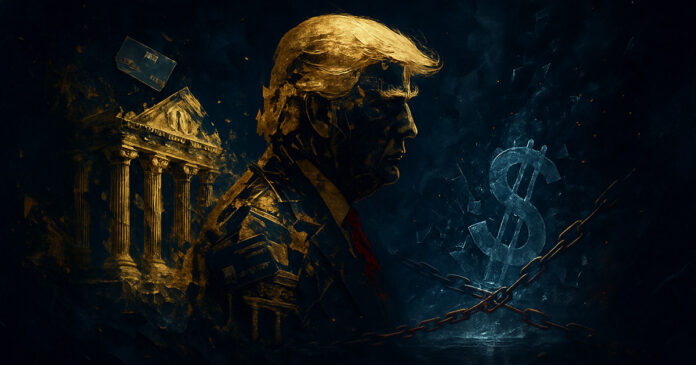Trump’s Bold Move: Can His Debanking Executive Order Save Crypto?
In a surprising turn of events, President Donald Trump has issued an executive order aimed at tackling the long-standing issue of debanking in the crypto sector. The move is seen as a significant step towards addressing what the administration describes as unfair bank discrimination against crypto companies. But will it be enough to put an end to the notorious Operation Choke Point 2.0, which has been suffocating crypto businesses by forcing banks to cut ties with them?
What’s in the Order?
According to Caitlin Long, CEO of Custodia Bank, the executive order has a few “hidden jewels” that are worth exploring. For one, it installs an independent supervisor to oversee the federal banking authorities, including the FDIC, Federal Reserve, and Office of the Currency. This supervisor will be part of the Small Business Administration (SBA), a non-bank regulatory authority, which will monitor debanking issues and ensure that banks are not unfairly targeting crypto companies. This move suggests that the administration has lost trust in the existing agencies to address these issues fairly.
A Bitcoin-Friendly Appointment
In a nod to the crypto community, President Trump has appointed Kelly Loeffler, a well-known bitcoin supporter and former CEO of Bakkt, to head the SBA. Loeffler’s appointment is seen as a significant indication that the administration is serious about reforming the banking system and addressing the issue of debanking. As a long-time advocate for bitcoin and the broader crypto industry, Loeffler’s leadership is expected to bring a fresh perspective to the SBA and its oversight of banking authorities.
Political Bias in Banking Agencies
For years, there have been concerns about the political leanings of employees within banking agencies, such as the Fed and FDIC. According to donation records, a staggering 92% of employees from these agencies have donated to Democratic candidates in recent elections. This has raised suspicions that regulatory measures may be driven by partisan biases, particularly in light of the history of crypto-related debanking during the Biden administration.
Defining “Politicized or Illegal Debanking”
Trump’s executive order defines “politicized or illegal debanking” in a way that focuses on “lawful business activities” rather than specific sectors like crypto. This means that banks can no longer refuse to serve companies simply because they operate in the crypto space, as long as they are otherwise compliant with regulations. The order is not just limited to crypto companies; it also applies to any lawful business that may be subject to political discrimination.
The Real Test: Will Banks Be Forced to Restore Services?
The true test of the executive order’s success will be whether banks that have previously debanked crypto companies, such as Custodia Bank, will be forced to restore services. Custodia was debanked despite having a clean compliance record, after regulatory authorities pressured banks to cut ties with crypto businesses. According to Long, if Custodia is able to regain access to banking services, it will be a clear indication that the executive order has been effective. As she puts it, “If they use us again, the EO succeeded.”

